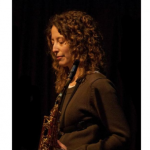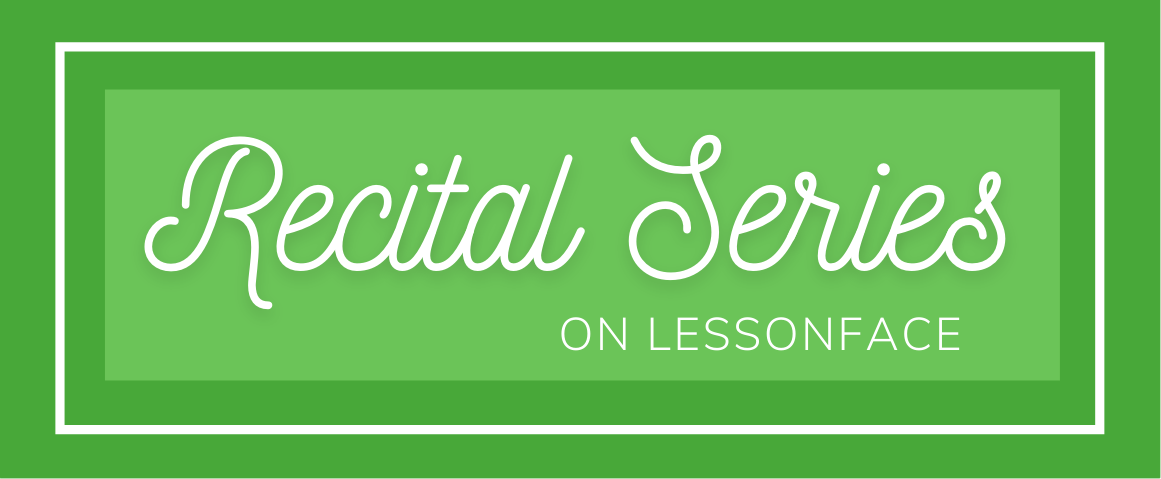Do you feel like you never have enough time to practice?
We all complain about that, but there is a lot we can practice that doesn't require having our instruments at hands.
When I was studying at college and working full-time I had to find a way to fit more practicing time in my days. I decided to share my ideas and maybe get some great tips from you guys in return.
So this is how I managed to squeeze some useful learning time out of every boring stuff I had to do everyday.
- Listen
I find many students not listening to the songs they are playing. Not listening their own instrument, or not hearing enough music at all. Prepare different playlists and stick to them for a few weeks. Some examples: "now studying" - what you are playing right now (ask your teacher to record if you can't find it); "inspiring idols" - the sound of those who made you choose your instrument; "inspiring music" - whatever inspires you to play, any instruments; "new discovers" - someone you've heard about and don't know yet, or a genre you're not used to listen.
Now play those lists while you drive, cook, workout, walk etc. Most of what we do daily only require hands, feet and eyes... ears are available most of the time :D
- Sing
If you're not a singer chances are you feel very unconfortable with your own voice. Most of us do. So fight that feeling and sing when you're alone. Sing the songs you're playing, scales, arpeggios, or just improvise melodies. Maybe add one more playlist with playalongs and do all that over a specific harmony. I always have some playalongs on my car. I just try to sing the roots of the chords, some small melodies, or just improvise.
Why you should sing? That could be a whole new post...
Besides many other benefits singing can help us pay attention to the melody, raising our melodical perception and improving our hearing skills. Sometimes we don't hear what we play. We can play in a mechanical way, Reading, moving fingers but not really hearing. Singing can help us change that.
- Technical practice
Practice some difficult finger combination, or some breathing exercices. I usually did some finger practice in lessons while the teacher was talking, waiting for the bus, walking at the street. You can also do some breathing exercices at the bus, before sleeping, or while driving on straight and empty roads.
- Rhythmic exercices
The rhythm should be a mix of rational math and natural movement. Feeling the beat in the body helps us understand rhythm. I used to sing or clap some polyrythm while walking, using my steps as the beat.
For example: imagine your steps are quarter notes and sing eight notes. Now change them. Create different combinations.
Dance classes can not only be fun but also help you improve your rhythmic skills.
Share your ideas on how to practice everywhere…
Where do you feel you waste more of your time? Can you fit some practice there?





This is a great post! I’m going to begin listening to classical guitar at work!
I love these ideas Lígia!
I really like the playlist examples you listed, they are perfect for developing well-rounded listening habits. Listening to examples of the music you're learning is super important, and I agree with you, it's not always obvious to students that they should be doing it. We get music under our fingers so much quicker if it's already in our ears! I especially like your category of 'New Discoveries'. I'm always surprised by how much and am inspired when I branch out of my usual listening patterns.
In addition to exploring new music and styles, try listening to familiar music in a new way. Pick apart the layers to a song. How many different parts/instruments/voices are there, and what are they doing when? If you play a melodic instrument, odds are your ears are usually drawn to a song's melody and that's the part that gets stuck in your head. Listen again and focus your attention on a lower and/or background parts of the recording. Depending on the style of music, that could mean listening to the bass, the lower orchestral instruments, or background vocal harmonies, or the lower part of a single instrument that plays multiple lines (guitar, piano, etc.). Listen again and focus all your attention on the percussion/rhythm section. You'd be surprised at all the layers that contribute to making a song what it is, even when we don't notice them at first!
Regarding technical practice you can do anywhere, many new guitarists have trouble controlling their fingers independently. That is, they will try to move their middle and ring fingers in opposing directions, for example, while keeping their index and pinky in place. This is something that you can work on without an instrument in hand. Choose two fingers to keep still (on a table or flat surface works best), and move the other two in the opposite direction. Repeat with all finger combinations. New flamenco guitarists can also practice rasgueos (strumming specific rhythms by extending the fingers one at a time) away from the guitar.
I'm looking forward to reading more ideas that students have to share!
Great ideas Lígia! Thanks a lot! I'll feedback you as soon as I practiced some or all of them!
Thanks Leah! Listening to familiar music in a new way is also very important. Didn't remember that!
In wind instruments we tend to focus so much on the melody. I'm also very driven to the lyrics too. And then you are in a band and you can't really help the rhythm section solve things because you've always been focused on the melody. It's good to move a step further and notice what the other instruments are doing and how the whole thing is put together. The way all the instruments interact is what makes the music really sound well.
Thanks for sharing your ideas!
Lígia
Now that students' (and teachers') schedules are getting busier again, I thought it might be worth bringing this conversation back to the surface. Many musicians and dedicated students, while we didn't enjoy the circumstances, did take advantage of our extra time at home to devote more time to practice.
How is everyone staying dedicated to practice now that real life is picking up again?
One thing I'm trying to remind myself is that quality of practice is more important than quantity. Take time to organize before sitting down with your instrument. Lay out very specific objectives, know how you'll accomplish them, free your practice space of distractions, and then get started. One hour of attentive, organized practice is much more effective than three hours of aimless playing.